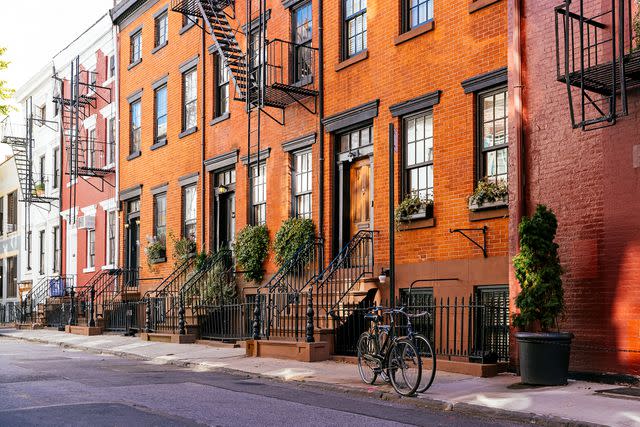New Restrictions Are Coming for NYC Airbnbs This Fall — What to Know
Finding a vacation rental in the Big Apple may soon become a lot harder due to a new regulation.
It will soon be harder to find a vacation rental in New York City.
On Tuesday, the Short-Term Rental Registration Law, also known as Local Law 18, came into effect in New York, upending the rules around short-term rentals like those found on Airbnb, VRBO, HomeAway, and Vacasa. The new rules require hosts to register their listings with the Mayor’s Office of Special Enforcement and require booking platforms to ban any unregistered listings.
If hosts are found violating the rules, they could face up to $5,000 in fines, while the platform can be fined up to $1,5000 per transaction.
Local Law 18, The New York Times reported, is an add-on to the already existing laws, which were meant to prohibit people from renting their homes for less than 30 days unless the host was also in the home during the stay. The previous law also limited rentals to no more than two guests per stay. However, The Times cited a legal filing that claimed more than half of Airbnb’s $85 million revenue in New York City in 2022 came from illegal listings. (Airbnb disputed the claim.)

Alexander Spatari/Getty Images
“Registration creates a clear path for hosts who follow the city’s longstanding laws and protects travelers from illegal and unsafe accommodations while ending the proliferation of illegal short-term rentals” executive director of the city's Office of Special Enforcement, Christian Klossner, shared in a statement per NBC New York.
So what does this mean for travelers? It will likely mean far fewer rentals will be available across the platforms. According to The Times, city officials received some 3,250 registration applications for short-term rentals, however, as of Aug. 28, just 257 were approved. And, specifically for Airbnb, if you’re a traveler with a reservation that begins after Dec. 1, your booking will be canceled and refunded. If you have a short-term stay coming up make sure to check with your booking platform to see how your stay may be impacted.
For it's part, Airbnb said the new rules are both confusing and a major blow to longstanding hosts and frequent guests.
“It has long been our goal to work with New York City to create sensible home-sharing regulations for our Host community, and for the better part of the last decade, we have worked hard to find a path forward,” Theo Yedinsky, Airbnb’s global policy director, shared in a statement provided to Travel + Leisure. “New York City’s new short-term rental rules are a blow to its tourism economy and the thousands of New Yorkers and small businesses in the outer boroughs who rely on home sharing and tourism dollars to help make ends meet. The city is sending a clear message to millions of potential visitors who will now have fewer accommodation options when they visit New York City: You are not welcome.”
The additional law, city officials explained to various media outlets, is all in an effort to combat the housing shortage for locals. However, as the Pew Charitable Trust reported in May, the shortage in both New York City and New York state as a whole may be more impacted by restrictive permitting for new housing and less to do with short-term rentals.
“New York’s lack of building doesn’t represent weak demand for housing, because its low vacancy rates and high rents indicate strong demand for homes,” the Trust noted. “Instead, rigid local regulations and cumbersome permitting processes have made building difficult, especially for lower-cost homes such as apartments, houses on small lots, units without off-street parking, and accessory dwelling units, such as basement, garage, or backyard apartments. Prior Pew research found that jurisdictions that updated their zoning policies to allow these types of homes had added more housing and contained rent growth.”
For more Travel & Leisure news, make sure to sign up for our newsletter!
Read the original article on Travel & Leisure.

